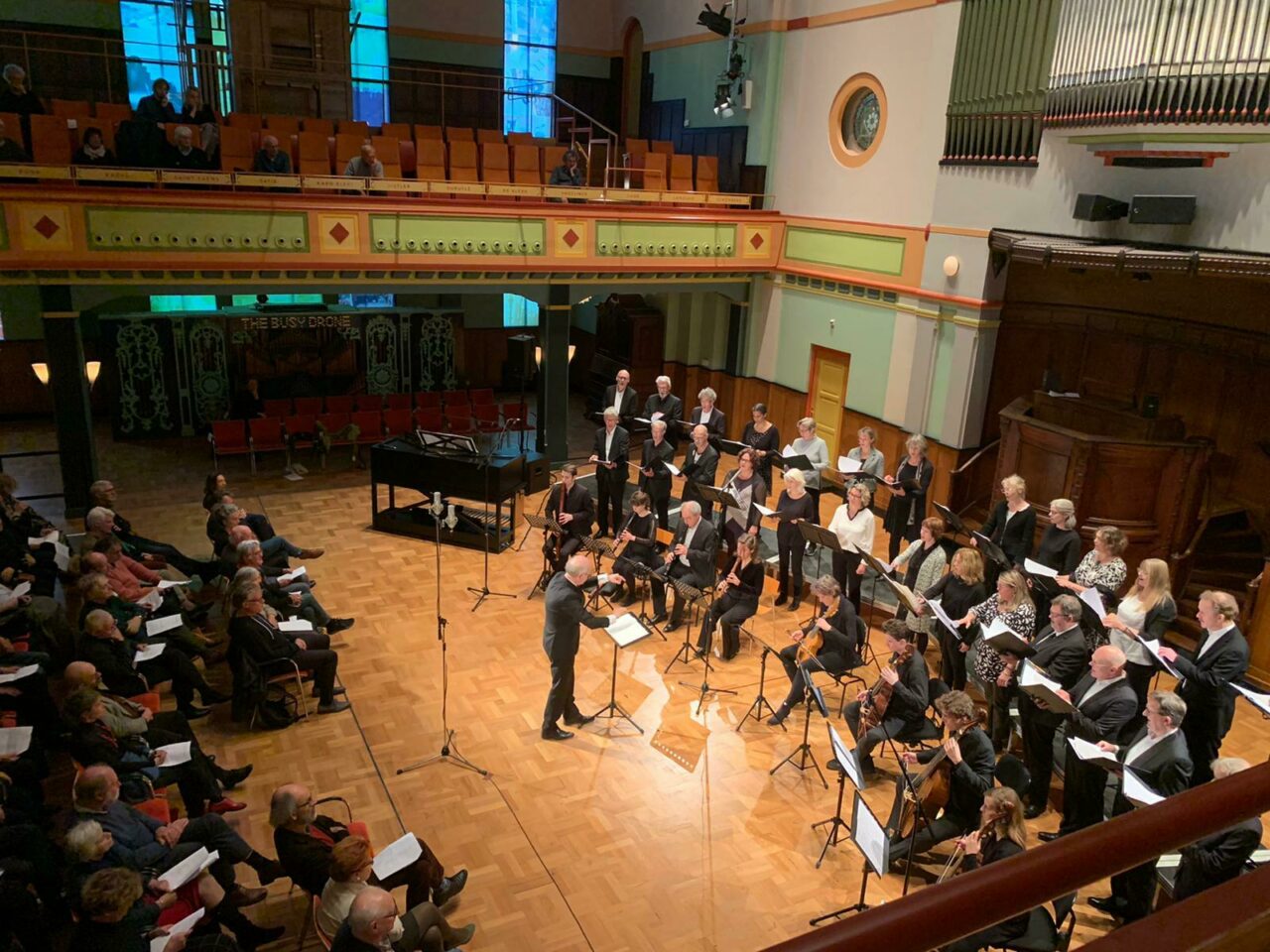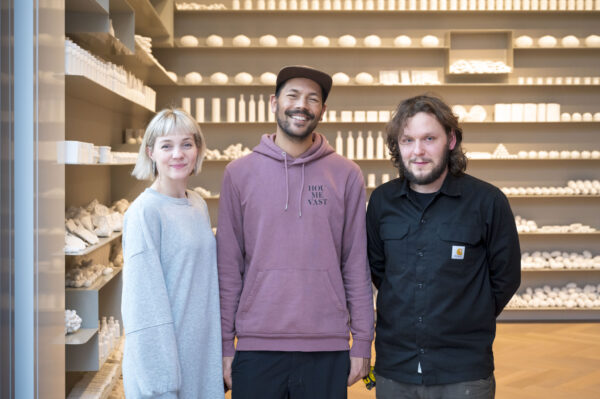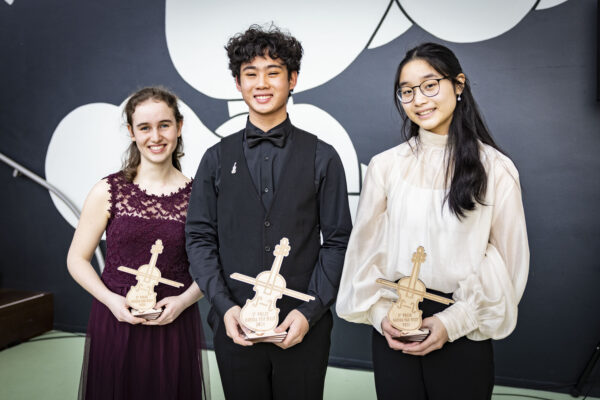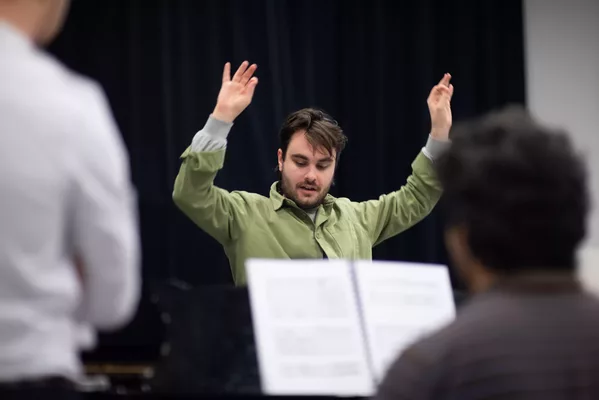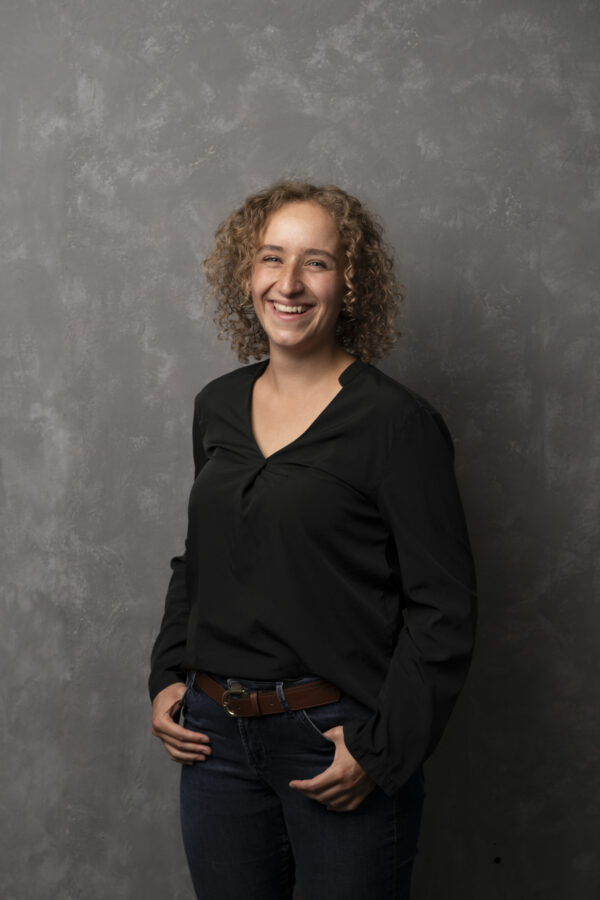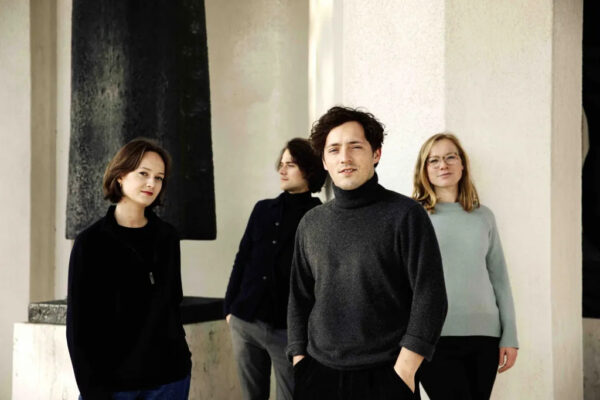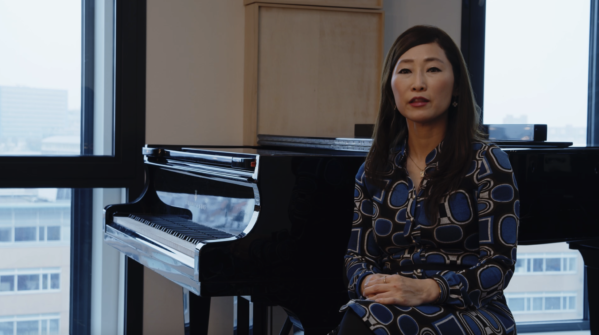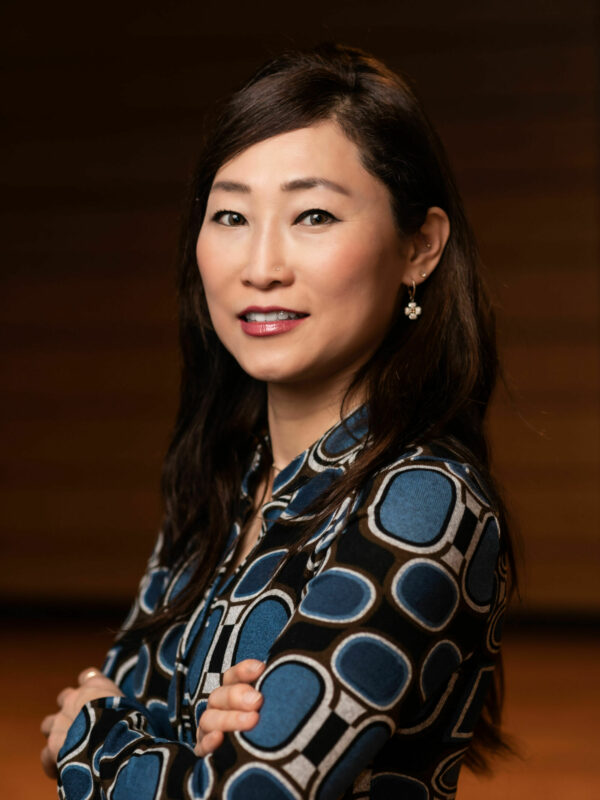In November the Dutch concert halls were filled with the music of main subject teacher composition Calliope Tsoupaki. It was a pile-up of postponed premieres and concerts of various pieces. 'A deep belief in what you are doing. That is the biggest professionality.'
Collaboration
One of the premieres was Memento Nostri, a requiem that Calliope composed for chamber choir Ad Parnassum, recorder quartet and viola da ga gamba quartet, after a request of conductor Anthony Zielhorst. The quartets, under the name of The Consort Company consisted of students and teachers of the Royal Conservatoire. The piece premiered in Abdij Koningshoeven near Tilburg on the 7th of november 2021. In the same week it was performed in November Music and in Orgelpark Amsterdam (see picture).
Jasperina Verheij, a student in recorder and classical voice at the conservatoire didn't just play Memento Nostri, but also a piece for solo recorder, Charavgi, a piece Calliope wrote back in 1994.
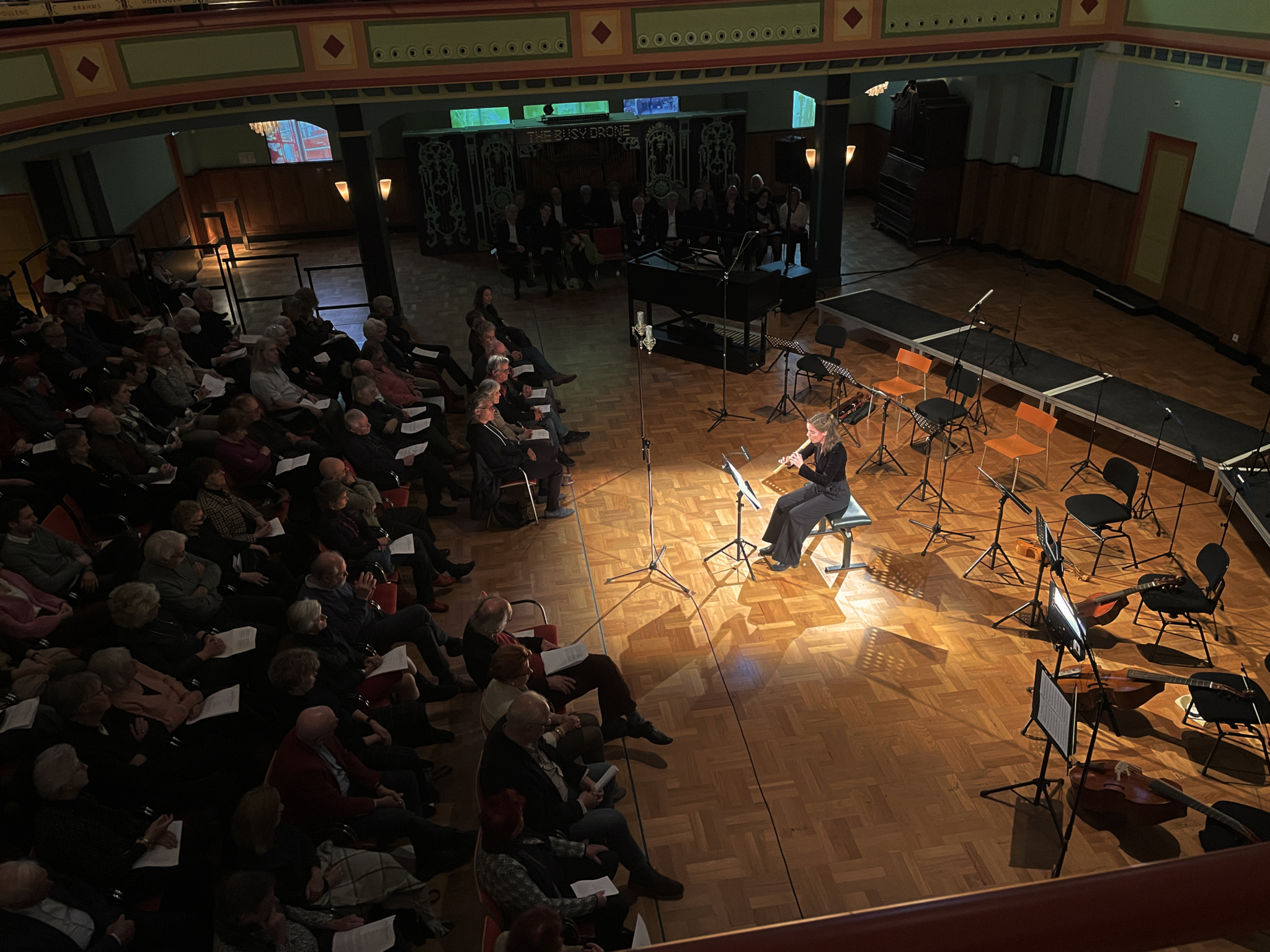
'It was a lot of fun to play. I feel a connection with the music. As a recorder player, you usually start with playing early music. But I started to play more and more modern music. With the music of Calliope, you can sense a connection with the early music. I find it interesting that there is so much space to play with time. That is something I search for in all music, but in hers really asks for it. '
Calliope loves the way Japerina played the piece: ' She creates a lot of space in the interpretation and I find that very beautiful. I am always happy when the thing I mean with my music is caught. Both of the pieces have some sort of elasticity in time and Jasperina got that.'
Teacher becomes colleague
Originally Memento Nostri was going to be premiered in November 2020, but when the time was there, members of the choir got corona and everything had to be postponed. On the 7th of November 2021, the piece could finally be premiered. Many of the participating students became alumni in the meantime.
Jasperina: 'I have known my recorder teacher Daniël Brüggen for 6 years now, and we played together in several projects. So even though it is my teacher, it is also my colleague. Of course, in any case, your teacher becomes your colleague the moment you graduate.'
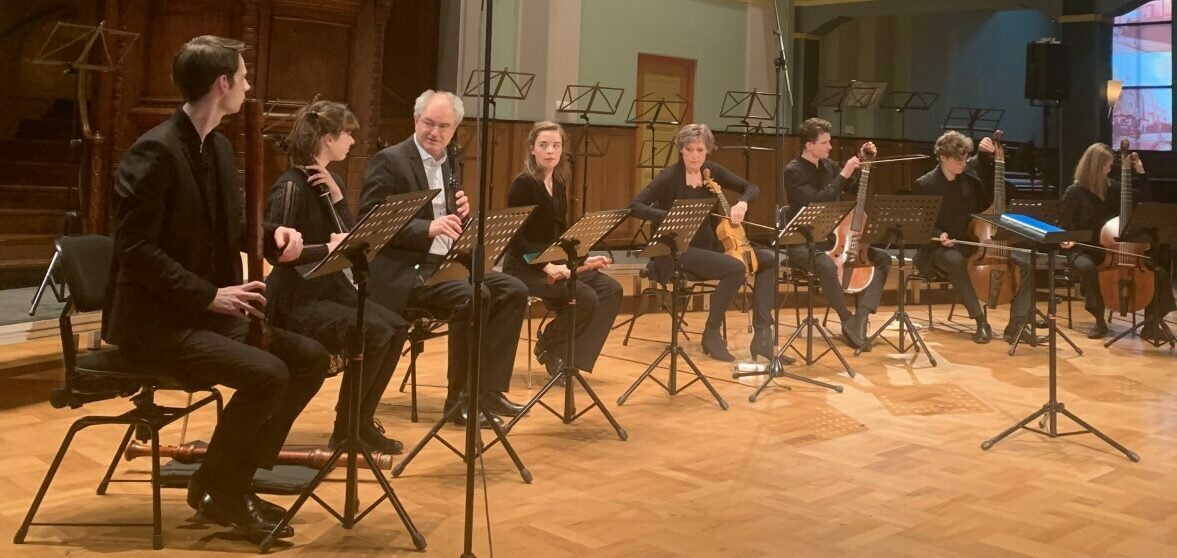
The student-teacher relationship is also something Calliope has been dealing with a lot this year. In the summer of 2021, her teacher Louis Andriessen passed away. She dedicated Memento Nostri to him.
'The last years before Louis passed away I didn't see him that much. It is important for composers to take some distance from their teachers. A Jasperina said you're colleagues as well. You shouldn't depend too much on someone as a student. Because of this distance, I was able to reflect with more freedom on what he thought me and how he still helps me.
Louis tried to really see who his students were. I came to Louis from Greece, and right away he saw that I am not a typical "Hague school" student, but I am dealing with music in a different way. He was able to understand this and stimulate this. Even today when I was giving a lesson I noticed his influence on me. A student didn't know what she could do with some chords. When we find a solution I told her: "That comes from Louis' practice, he taught me this." He still has an influence on our lessons. Louis Andriessen is still very much alive in our department. We are very open about the different ways in which you can make music, that actually comes from him.'
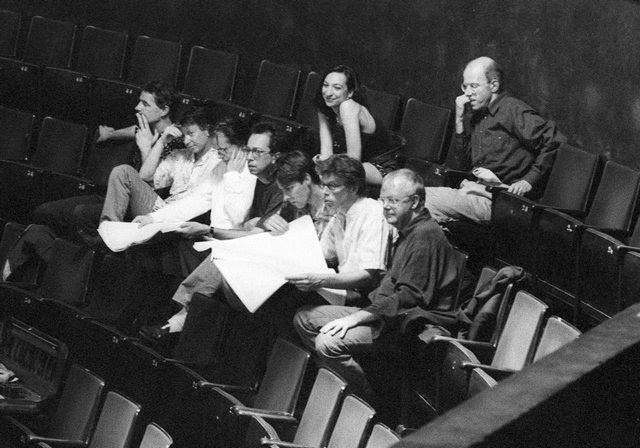
The exchange between lessons and practice
'I think it is good to be active as a composer. You get some sort of vitality out of it, which you can infect your students with.'
For Jasperina the exchange of what happens in and outside of the conservatoire is also very important. She is already working a lot as a performing musician, both on recorder and voice, but next to that she also still studies both subjects. On top of that, she follows a study at the university.
'Sometimes it is quite difficult for me to switch between the different practises. It happens now and then that I am in a lesson but my head is already at a different place. But it is also good to have this overlay. My different studies can feed each other with inspiration and ideas, I find that very nice, but you have to keep looking for a good balance all the time.
Time and continuity
Odysseus is another composition that premiered in November. Calliope wrote it as a commision of Asko|Schönberg. In Odysseus again, the composer is playing with or perception of time. The last performance was supposed to happen on the 2nd of December in Rotterdam in De Doelen, but because of the corona measurements, it had to be postponed.
Calliope: ‘My research to time started in my group lessons, which I gave to students of the bachelor Composition, In those lessons, we looked at different composers focussing on continuity in the music and specifically on time. This research was at the start of Odysseus.
The epic Odysseus doesn't have continuity in it. It is full of random decisions and you can get lost in all the plot turns. I thought: "If I want to approach this story I am not going to tell anything, but I am going to try to lose myself in the music as well"
That's why I tried to make a piece that is not linear. It consists of loose elements which are unfinished in some way. I leave gaps in those elements so that I can fill them in with other elements and processes. In order to keep the music alive. With this way of non-linear composing, I only placed all elements in the right order at the very last moment.
With this composing method, I give space to my material. I also tell it to my students: We shouldn't hold on so tightly to our materials, we need to learn to let go, let the materials re-order themselves from time to time.
Keep going
For composers it is a hard time right now, corona placed us in a discontinuity. I want to advise you: Keep going with what you're standing for. And try to always believe in what you are doing. Go to musicians to musicians to collaborate with and know you've got something to offer them.
What is being professional as a composer? It is not just self-branding, entrepreneurship and business things. A deep belief in what you are doing. That is the biggest professionality.'
